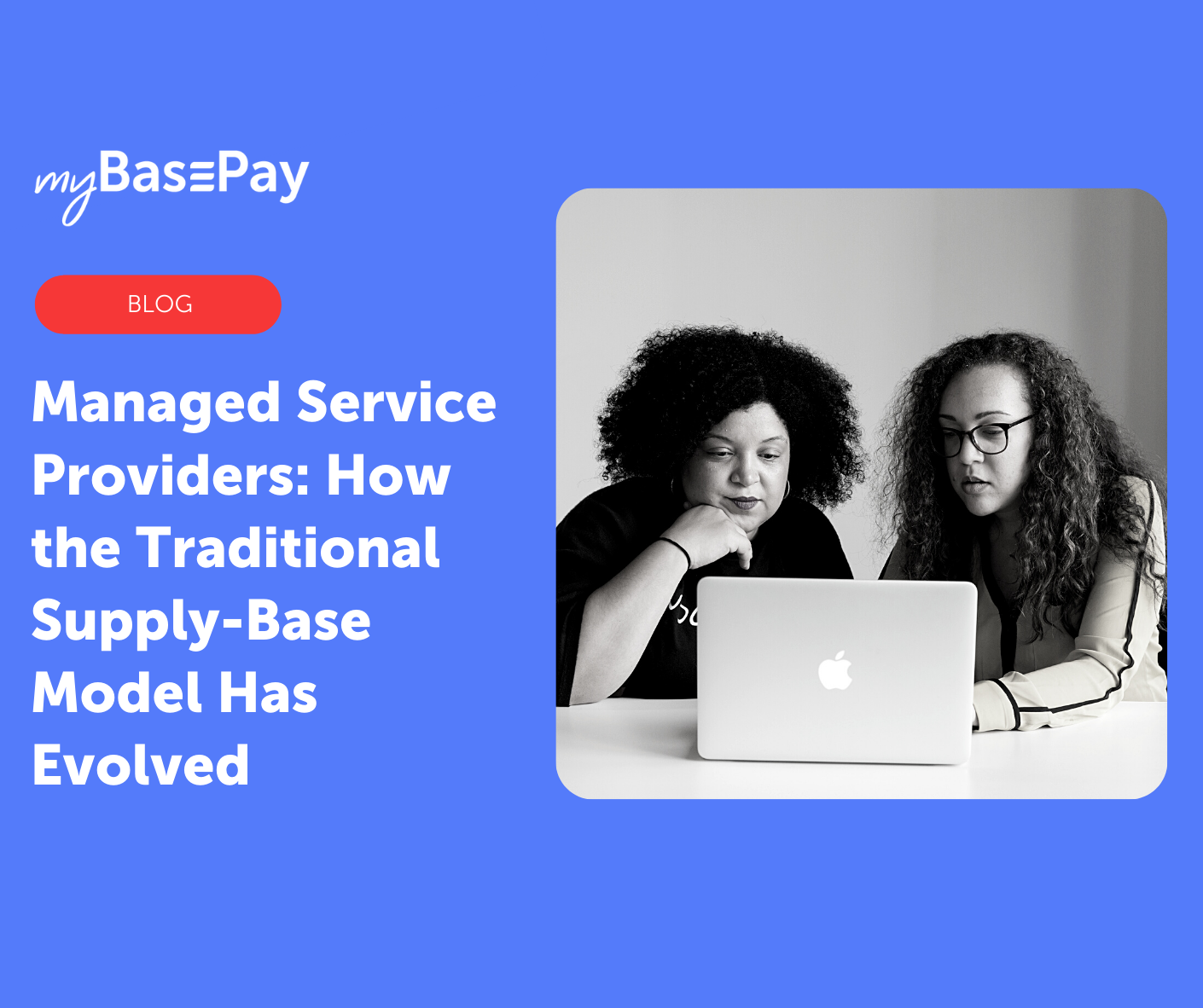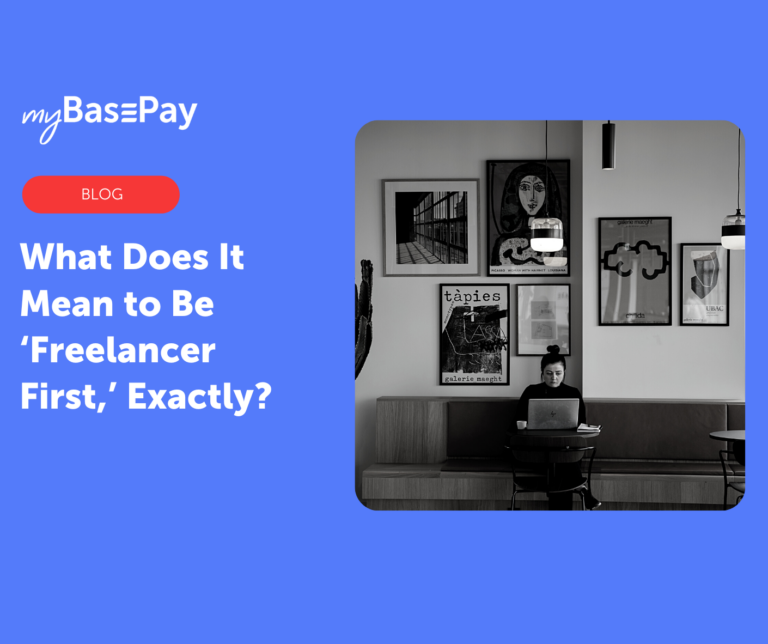Managed Service Providers: How the Traditional Supply-Base Model Has Evolved
It used to be that when a company needed additional talent to get a job done, they generally had two options: hire a new employee, or outsource the work to another company. The idea of using contingent talent (also known as freelancers) was practically a foreign concept.
Yet nowadays, the traditional supply-base model for matching workers with employers has been dramatically upended by the rise of freelancers. Statista estimates that the number of freelancers in the United States will exceed 90 million by 2028, making them the majority of the workforce.
There are several key factors that have played a role in the evolution of the traditional supply-base model, not the least of which are managed service providers that help facilitate these business partnerships.
Changing Expectations, Opportunities and Challenges
Of course, a key consideration in all of this is how expectations have changed for many workers — particularly over the last few years. The COVID-19 pandemic is largely credited with accelerating the growth of freelance work.
People who were laid off began working independently. Others became dissatisfied with their current place of employment and wanted a lifestyle that gave them more freedom and flexibility. And of course, the prevalence of remote work during the height of the pandemic illustrated how many of today’s jobs don’t need to be done in an office at all.
All of this has created an environment where more and more people are choosing to become independent contractors, rather than full-time employees — especially among younger generations that are just entering the workforce.
For businesses, this represents both an opportunity and a challenge. The challenge arises for those who are reluctant to adapt to these changes to the traditional supply-base model. While there are many factors making it hard for employers to fill open positions, hesitance to work with independent contractors is certainly among them.
On the other hand, organizations that are willing to engage with independent contractors can develop a more agile approach to staffing. They can grow (or shrink) their workforce as needed based on the status of ongoing projects. They also enjoy reduced overhead, as they do not need to provide contractors with health insurance, paid time off or other benefits.
Talent Matching Via Online Marketplaces
Of course, even for businesses that want to connect with freelancers, reaching out to top talent can prove a challenge. This is one key area where managed service providers are making a significant impact. A number of freelance marketplaces (also commonly known as talent platforms) have sprung up on the web to connect independent contractors and those who wish to employ them.
While each online talent marketplace is different, these platforms all help facilitate these key partnerships. Businesses are given the ability to post a job requisition through the marketplace. Depending on the type of services the marketplace offers, it may allow interested freelancers to submit applications for the job opening, or it may match the business with a relevant, vetted contractor.
In many ways, these online marketplaces act similarly to digital job boards for salaried positions. However, rather than being a mere “first step” in the job application process, the online marketplace facilitates the entire onboarding process. By having all parties involved going through the same platform, this helps put everyone on equal footing.
It is worth noting that not all talent marketplaces are created equal. Some focus on specific industries or specialized niches (such as talent from a specific area), while others aim for more of a “one size fits all” approach. Businesses would be wise to carefully evaluate which talent marketplaces are best-equipped to match them with the quality talent they need.
Creating Standardized Processes
One key factor that can help set a managed service provider apart from other talent marketplaces is its ability to help your business create standardized processes for engaging with freelance talent.
As part of the upending of the traditional supply-base model, businesses must recognize that freelancers cannot be treated the same as employees. These individuals are technically their own business, and therefore, relationships should be approached like a business partnership.
A managed service provider can help ensure that everything goes smoothly by providing full cycle onboarding, invoicing, payroll and compliance administration. This ensures that independent contractors are paid the agreed-upon rate in a timely manner, and that they are classified appropriately for tax purposes.
This level of support provides much-needed risk mitigation in an increasingly complex compliance environment. It also ensures a consistent experience for freelancers.
A standardized approach to doing business with freelancers ensures a strong working relationship that will make them willing to work with you again the next time you need their services. This can also help build a strong employer brand, which will prove crucial for attracting top talent for other projects.
By making use of a managed service provider, you can have confidence that each independent contractor will have the same high-quality experience working with your company to achieve these desired outcomes.
Strong Managed Service Providers Lead to Better Results
The traditional supply-base hiring model has changed dramatically over the last few years. This is particularly true of fast-growing sectors like accounting, customer service, digital marketing and recruiting, where the very nature of the job makes it a good match for the freelance lifestyle.
For businesses, adapting to these changes provides both opportunities and challenges. Enhanced flexibility and agile scaling of staff can simultaneously improve productivity while lowering a company’s overhead. At the same time, issues with onboarding, misclassification and other aspects of talent management can derail the entire process.
This makes using a managed service provider in the staffing industry a true game-changer — and that’s what you get with myBasePay. myBasePay offers both a talent acquisition marketplace that helps you expand your partner network and fill job postings, as well as a full suite of back-office solutions that simplifies the management of contingent talent.
With a strong managed service provider as your partner, you will be better equipped to succeed as you navigate the continually evolving hiring environment.
Author: Cesar Jimenez, myBasePay CEO
Cesar A. Jimenez is an entrepreneur, investor, and military veteran with over 25 years of staffing industry expertise successfully leading technology staffing organizations. His expertise in the IT industry allows him to use his experience as a thought leader for talent acquisition, staffing, IT, and recruitment technologies with a passion for contingent workforce solutions. Cesar has held various leadership roles for both a global staffing organization and technology solutions companies. This expertise has enabled him to develop alternative workforce models that provide the agility for organizations to be competitive in today’s marketplace. In his spare time, he enjoys spending time with hisfamily, working out, and coaching high school baseball players.






